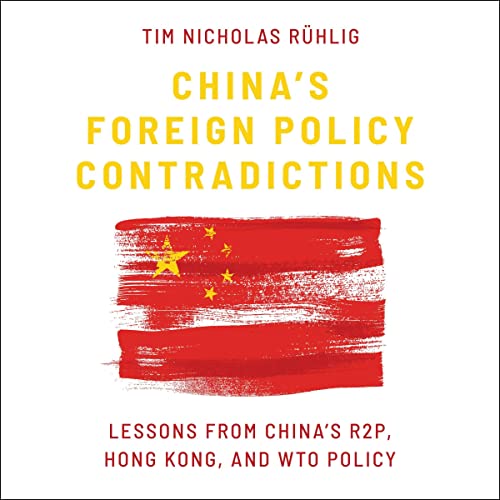
China's Foreign Policy Contradictions
Lessons from China's R2P, Hong Kong, and WTO Policy
Falha ao colocar no Carrinho.
Falha ao adicionar à Lista de Desejos.
Falha ao remover da Lista de Desejos
Falha ao adicionar à Biblioteca
Falha ao seguir podcast
Falha ao parar de seguir podcast
Experimente por R$ 0,00
Compre agora por R$ 35,99
-
Narrado por:
-
Jamie Renell
Sobre este título
Throughout the post-Mao reform era, China has championed the principle of sovereign state control, which holds that states should not intervene in the affairs of other states. Yet, as Tim Nicholas Rühlig argues in China's Foreign Policy Contradictions, in recent years they have not actually acted this way. Chinese foreign policy actions fail to match up with official rhetoric, and these inconsistencies - in combination with China's growing power - will have dramatic effects on the future shape of international order.
To explain these contradictions, Rühlig draws from in-depth interviews with party-state officials to explain the foreign policy dynamics and processes of the normally opaque Chinese party-state. He demonstrates how different sources of the Chinese Communist Party's domestic legitimacy compete within the complex and highly fragmented Chinese party-state, resulting in contradictory foreign policies. He focuses on three issue areas: international human rights law and "responsibility to protect" (R2P); China's role in World Trade Organization (WTO) policymaking; and China's evolving relationship with Hong Kong.
In this work, Rühlig shows not only why China's foreign policy is so inconsistent, but why it is likely to contribute to a more particularistic, plural, and fragmented international order in the years to come.
©2022 Oxford University Press (P)2022 HighBridge, a division of Recorded Books

